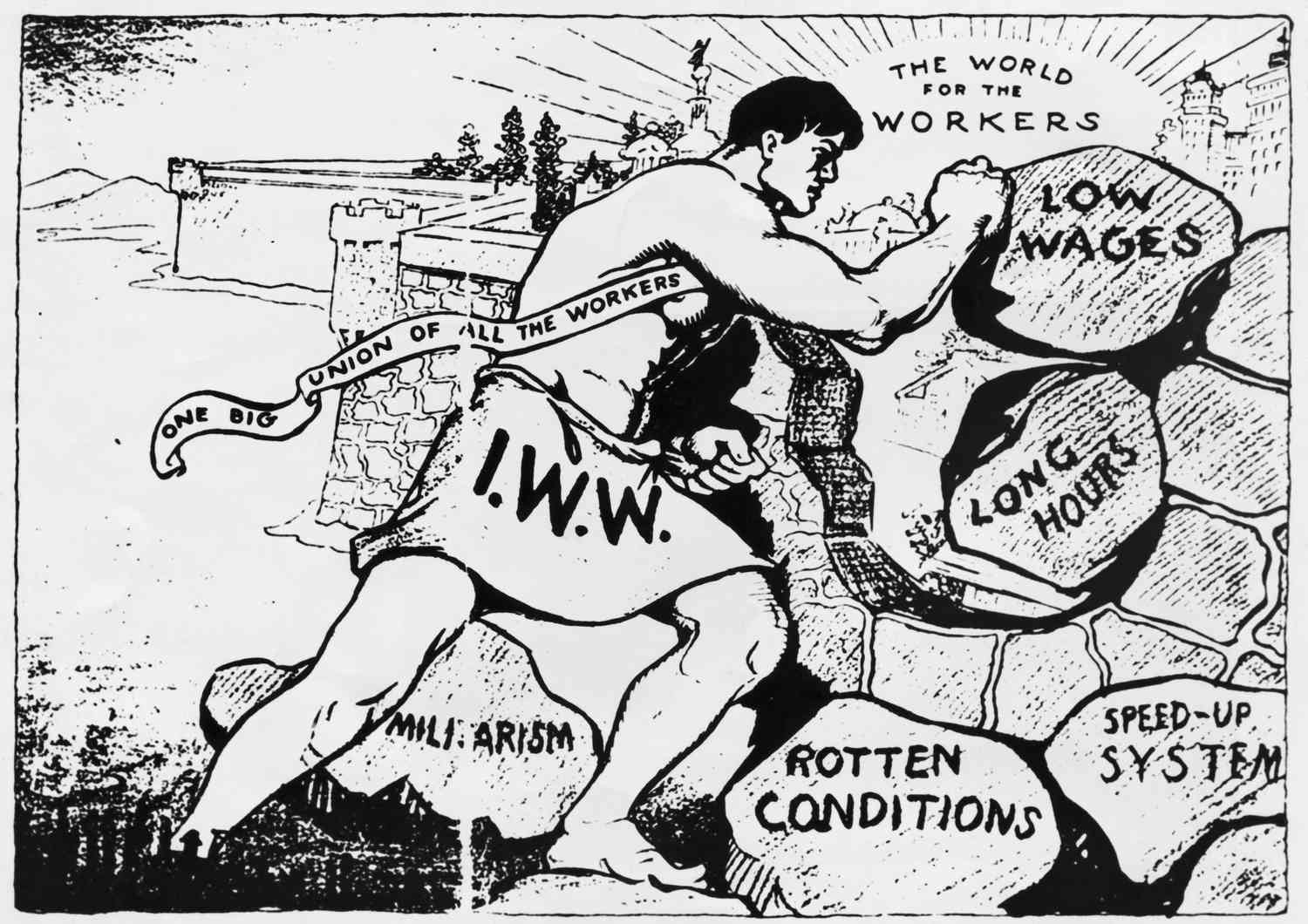On September 24, 1918, the Canadian government made membership in the Industrial Workers of the World illegal. The maximum sentence for membership in the IWW was five years to be served in one of 24 internment camps.
War brings out the worst in people and part of the propaganda of government in war time is to play on fear; fear of the “other”, fear of the “unknown”. During the First World War it was radical groups and publications, many whose membership came from Eastern Europe, that were targeted.
Within weeks of the start of the war in August 1914, Canada’s parliament passed the War Measures Act. In 1916, the press censorship was introduced by an Order-In-Council. In total of the 253 publications banned during the war, 164 were in a language other than French or English. But it was the 1917 Russian Revolution, and its withdrawal from the war, that caused the Canadian government to crack down harder on any social dissent.
By Order-in-Council PC2384, the federal government outlawed political and labour groups, focusing on German, Russian, Ukrainian and Polish speakers. It banned freedom of association, assembly, and speech for many Canadians.
One of the labour groups banned was the radical Industrial Workers of the World (IWW), or as they were known “Wobblies”. This industrial union organization had been founded in 1905 in Chicago and quickly spread across North America. By 1906, the first Canadian chapters had been formed in B.C.
The IWW espoused the idea that workers should all be in one union as opposed to the tradition of Trades. It organized all workers including women and workers of colour. It organized unskilled laborers, the poor, and recent immigrants, all who were often on the margins of society. The IWW believed in “revolutionary syndicalism” where, once organized, workers would initiate a general strike and replace capitalism with a society run by workers. The Wobblies also opposed the First World War and the price paid by working people and, as a result, became an enemy of Prime Minister Robert Borden and the Canadian government.
On September 24, 1918, Borden’s government made membership in the Industrial Workers of the World and thirteen other (primarily ethnic radical political organizations) illegal. The maximum sentence for membership in the IWW, or affiliation with the banned organizations, was five years to be served in one of 24 internment camps.
The ideas of the Wobblies were harder to stop, however. When western Canadian workers formed an organization called the One Big Union (OBU) in 1919, its ideas were closely aligned with those of the IWW. Today every time “Solidarity Forever” is sung on a picket line or at a union convention the IWW spirit lives on because that was their song!
Megathreads and spaces to hang out:
- ❤️ Come listen to music and Watch movies with your fellow Hexbears nerd, in Cy.tube
- 💖 Come talk in the New Weekly Queer thread
- 💛 Read and talk about a current topics in the News Megathread
- ⭐️ September Movie Nominations ⭐️
reminders:
- 💚 You nerds can join specific comms to see posts about all sorts of topics
- 💙 Hexbear’s algorithm prioritizes comments over upbears
- 💜 Sorting by new you nerd
- 🌈 If you ever want to make your own megathread, you can reserve a spot here nerd
- 🐶 Join the unofficial Hexbear-adjacent Mastodon instance toots.matapacos.dog
Links To Resources (Aid and Theory):
Aid:
Theory:

I am completely incapable of sticking with any kind of label for myself. On one hand I wish I was more decisive and knew what I want so I could take steps to achieve that and be happy, because right now it's like how I feel about things change with the wind, but I also think there's a phenomenon of people that label themselves one way and feel like they can never change it or grow or discover something new, because the label has become their identity and if they change that then that means they were somehow lying about feeling the way they did before or that they're not valid because they aren't all in on whatever label they've used. Does any of that make sense?
Definitely. I think some people look to labels as a description and others look to them as a guide/identity. Speaking from experience, the later comes from not having a strong sense-of-self. "If I am a gay man, my life can look like this and I can fit in this box." "If I am an anarchist, i can meaning-make through these activities." "If I am a communist I can have a unified belief system and make sense of the world."
Or from the other end, "I am a man who loves men and has this affect, I am a gay man." "I do mutual aid and hangout cool, I am an anarchist." "I have a specific understanding of capitalism and social change that I test and refine through social struggle, I am a communist."